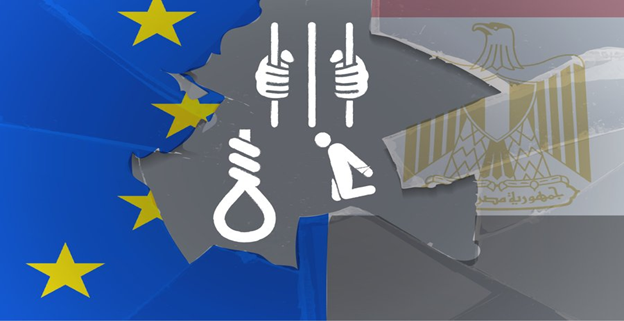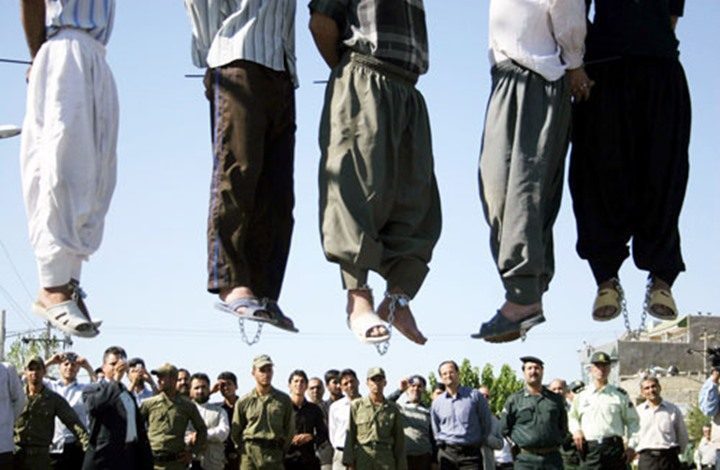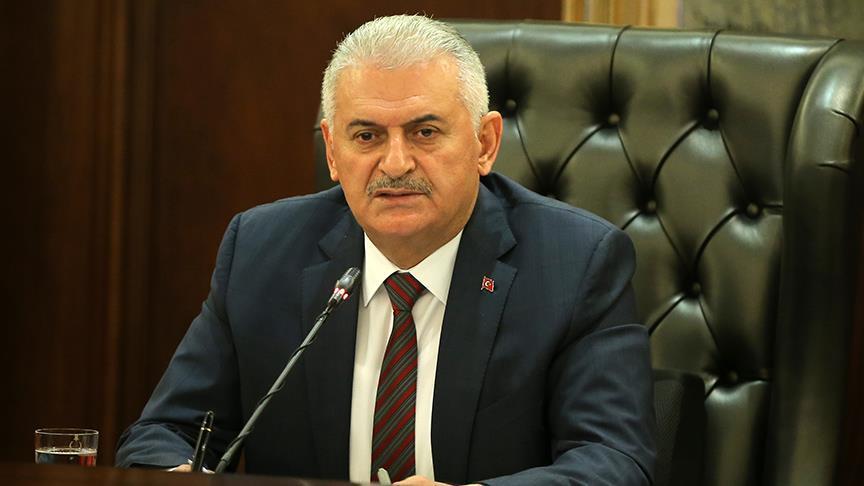
As the European Union is supporting the Egyptian government financially to face the country’s economic hardships, it should also back the Egyptian people in the face of the regime’s abuses.
Last Wednesday, Ursula von der Leyen, the president of the European Commission, announced that the EU allocated 100 million euros as “an immediate relief” for Egypt to face its food crisis.
Human rights groups say as the European Union cares for the Egyptian government and helps it to face its dire economic conditions, the EU should also care for the Egyptian people and pressure Egypt’s dictatorship to improve the bad human rights conditions in the country.
The EU should press for stopping torture, abolishing executions, and releasing arbitrarily detained persons, as considered essential criteria for measuring real progress in the field of Human Rights. Meanwhile, the lack of progress in this regard should have serious consequences on Europe’s support for the Egyptian government.
In a recent tweet, published on its Twitter account, the Cairo Institute for Human Rights Studies (CIHRS) said, “Stopping torture, abolishing executions, and releasing arbitrarily detained persons are essential criteria for measuring real progress in the field of Human Rights, and lack of progress should have serious consequences on Europe’s support for the Egyptian government.”
The Sisi regime has persistently worked to convince Western governments that security can be separated from democracy and human rights, a strategy which seems to be successful, amid the continued support provided by the West to Egypt’s dictator.
As news and leaks of human rights abuses were being circulated recently, some Western countries were racing to supply the military regime of Egypt with arms, diplomatic support and financial aid despite impassioned calls from rights advocates to turn the tide of abuses in that country of over 100 million people.
US President Joe Biden once called Egypt’s Abdel Fattah al-Sisi ‘Trump’s favorite dictator’, and campaigned on a promise to take a stronger stance on human rights, as opposed to the Trump approach in Egypt and elsewhere. Nevertheless, on 25 January Biden approved a whopping $2.5bn in arms sales to Egypt.
But, after a major outcry from shocked rights advocates, the US State Department said it was now blocking $130m in military aid, only a fraction of the direct US aid Egypt’s military rulers receive annually ever since Cairo signed a peace deal with Israel in 1978.
Despite the fact that Egypt uses terrorism charges to penalize political opponents and has arrested or charged at least 60,000 of them, the European Union continues to support Sisi economically and diplomatically.
Late last year, a report by the French investigative website Disclose revealed that officers from French military intelligence were involved in a clandestine operation that targeted and killed civilians suspected of smuggling on the vast desert borders between Libya and Egypt.
Egyptian officials had bragged on public TV that in the French-aided operation, they managed to destroy 10,000 cars suspected of smuggling in the country’s Western Desert.
This prompted speculation that the number of those killed was in the hundreds, if not in the thousands.
Those incidents, and others, have shed uncomfortable light on how Western powers have moved to sweep rights under the carpet and side with Sisi’s increasingly violent regime to the point where they risk appearing to reward, rather than censure, it.
In January, Cairo prosecutors renewed the detention of three Al Jazeera journalists: Hisham Abdelaziz, Bahaa Eldin Neamatalla and Mohamed Said Fahmy – for spreading fake information about the country. They were detained at Cairo Airport during their return from Doha to Egypt for annual holidays.
The family of 61-year-old Egyptian lawyer Hoda Abdel Moneim, who was imprisoned for defending political prisoners, said they now feared for her life after her health deteriorated rapidly because of a blood clot.
The London-based Arab Organization for Human Rights said that since Sisi’s take-over in June 2013, some 914 political prisoners have died behind bars due to appalling conditions and medical neglect.
A blogger who advocated for greater freedoms, popularly known as Mohamed Oxygen, as well as another blogger called Alaa Abdel Fattah, and his lawyer Mohamed El-Baqer, were all sentenced to five years in prison in addition to their previous time behind bars.
The sentence came despite public calls for their release. They were charged with spreading fake news against national security and using social media to violate publishing laws.
This follows a spate of even more cases of enforced disappearances, unfounded investigations for national security and counter-terrorism-related charges and mass death sentences.
That partly explains why rights advocates are now starting to question how far Western powers may be abetting the atrocities.
Claudio Francavilla, EU Advocate with Human Rights Watch, says the European bid to give Sisi some power over counter-terrorism operations ‘goes beyond the usual mere hypocrisy and dodgy backdoor deals’ and that they were giving ‘unconditional military, political, and economic support to Egypt’s abusive government’.
‘It would be an open affront to the peaceful Egyptian critics who have paid a high price for their efforts to secure human rights and a democratic future for their country, and whom the state has labelled as “terrorists” for daring to do so’, Francavilla says. ‘Egypt has become a human rights black hole.’



